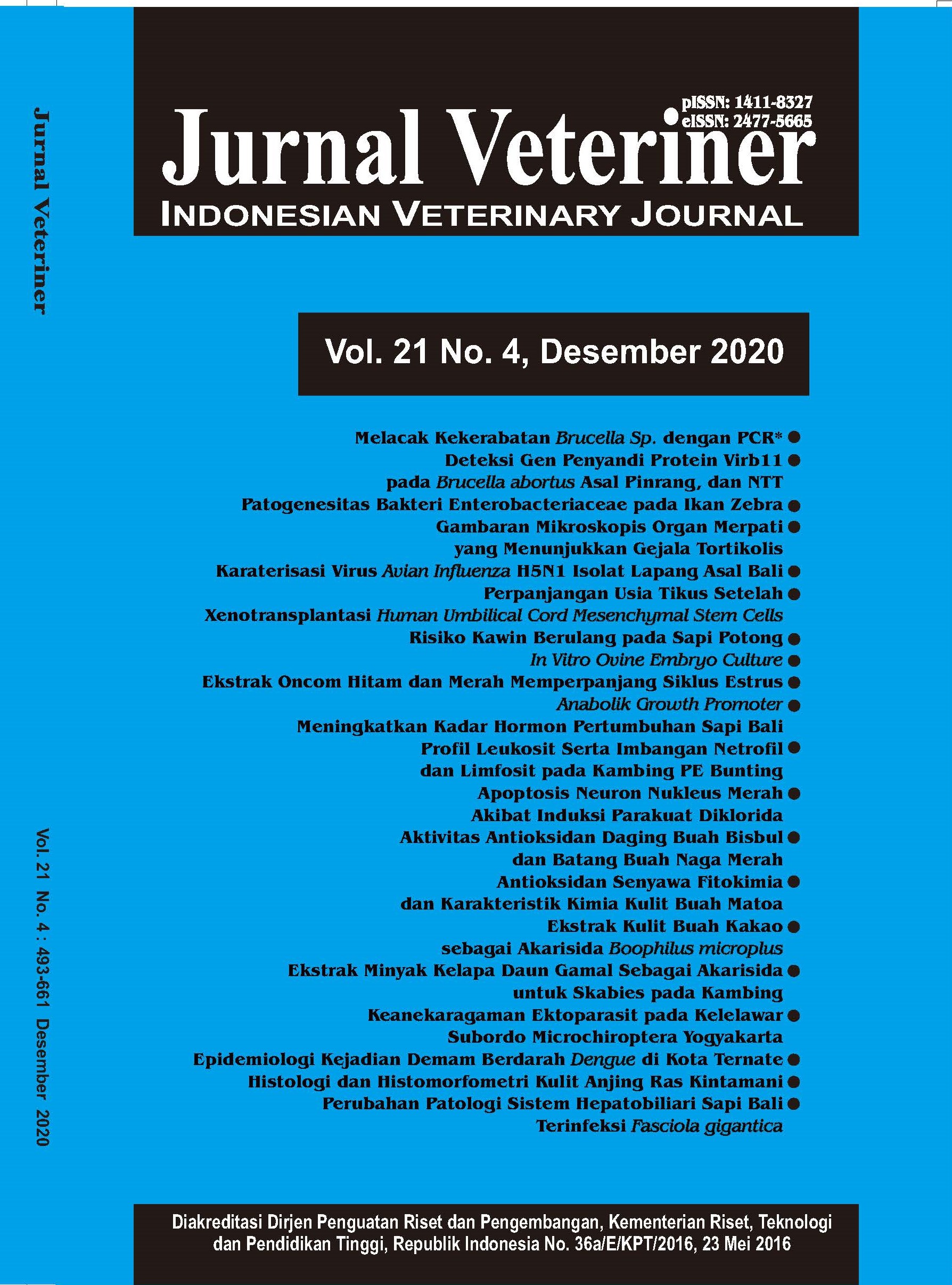Patogenesitas Bakteri Enterobacteriaceae pada Ikan Zebra (Danio rerio) Sebagai Hewan Model
PATHOGENICITY OF BACTERIA ENTEROBACTERIACEAE ON ZEBRAFISH AS ANIMAL MODEL
Abstract
Enterobacteriaceae are Gram negative bacteria contain endotoxin and exotoxins which are
requirements for pathogenic bacteria and act as opportunistic pathogens. The purpose of this research was to determine the ability of Enterobacteriaceae bacteria to infect zebrafish (Danio rerio) by observing anatomical pathology, mortality, time death and cumulative time of death. The method used in this
research is a completely randomized design method (CRD). This research was conducted in three stages, first preparation of zebrasfish as animal model by average size 3-5cm and reach three months old. Second, bacterial cultures from 10 species of Enterobacteriaceae were Escherichia coli 1, E. coli 2, Enterobacter
cloacae 1, Acinetobacter calcoaceticus, Enterobacter amnigenus 1, Enterobacter amnigenus 1, Escherichia coli 3, Pantoea spp., E. cloacae 1, E. cloacae 2, E. cloacae 3, cultured in Brain Heart Infused Broth (BHIB) and later media washed with Phospate Buffer Saline (PBS) 0.45%. The third stage was bacterial infection to zebrafish using immersion method with each treatment repeated 3 times and observed for 120 hours. The results showed 10 species that used caused death (mortality), the highest mortality in fish that infected with E. coli 2 and E. cloacae 1 with a percentage of 66.67% infected by E. coli 2 and E. cloacae 1. Anatomical
pathology in the external organs and internal organs showed post-infectious symptoms. Infection occurred with mean time to death of 12-86 hours, as long as the cumulative time of fish death caused by E. coli 2, A.cinetobacter calcoaceticus and E. cloacae 1 causing death from 24 hours after infection until the end of
observation.



















